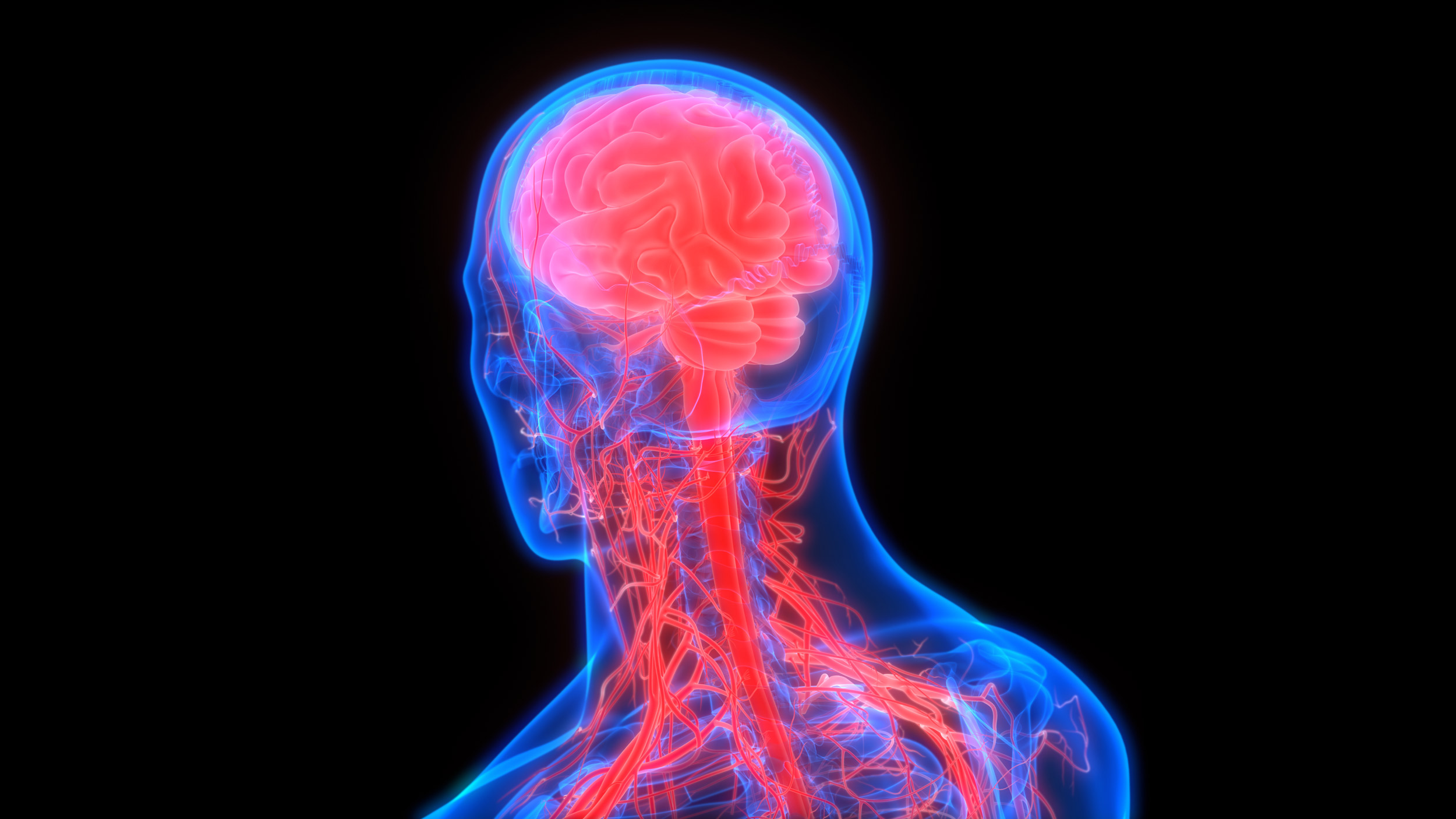Have you ever heard about the vagus nerve? It plays a powerful role in calming your body, reducing stress, regulating emotions, modulating inflammation and supporting overall well-being. By engaging in practices that support vagus nerve function—like deep breathing—you can improve your ability to switch between states of stress and relaxation. This ability, known as autonomic flexibility, is key to stress resilience and overall well-being.

What is the vagus nerve?
The vagus nerve is the primary component of the parasympathetic nervous system—responsible for approximately 75% of its fibres. This branch of the nervous system is often called the “rest, repair, and recover” system, helping your body return to a state of calm after stress.
In contrast, the sympathetic nervous system is the branch associated with the “fight or flight” response—your body’s reaction to perceived threats.
The vagus nerve is the 10th cranial nerve—or more precisely, a pair of nerves—that originates in the brainstem and extends down through the neck, branching out to connect with key organs, including the heart, lungs, gut, and liver.
It regulates many autonomic (involuntary) functions – processes we don’t even consciously think about!
These include heart rate, respiratory rate, digestion and gut motility, detoxification processes, immune function and inflammatory control.
Beyond its physiological roles, the vagus nerve also plays a crucial role in emotional regulation and supports feelings of safe social connection with others.
Healthy vagus nerve function is essential for stress resilience and long-term health, helping your body shift out of fight or flight mode and back into a state of calm, repair, and balance.
The vagus nerve: Your personal surveillance system
The vagus nerve is a key player in your body’s constant assessment of your internal and external environment. It helps determine whether you feel safe, in danger, or under life threat and relays this information to the brain.
This process, known as neuroception, occurs below conscious awareness. In fact, 80% of vagal fibers are afferent, meaning they travel from the body to the brain, carrying crucial information about your state of being. This is why your body often reacts to stress before your mind fully registers it.
The remaining 20% of vagal fibers are efferent, meaning they travel from the brain to the body to regulate essential functions.
These fibers help slow the heart rate, regulate digestion, dampen down inflammation and restore balance after stress.
When the vagus nerve is functioning well, your brain can effectively send calming signals to the body, helping you recover faster from stress.
How chronic stress affects the vagus nerve
Chronic stress—whether physical, mental/emotional, dietary, or chemical—is perceived by the body as a potential threat to survival, activating the sympathetic nervous system. This ongoing state of alert impairs vagus nerve function, making it harder to transition from stress to relaxation.
As a result, you may feel stuck in a state of hyperarousal, often characterized by anxiety, insomnia, or the sensation of being “tired but wired.”
In cases of prolonged or significant stress or trauma, the body may shift to a different response—freeze or shutdown—bringing symptoms like emotional numbness, exhaustion, or disconnection. This state is commonly linked to burnout and chronic fatigue.
As the main pathway of the gut-brain axis, the vagus nerve’s impairment can significantly impact digestion. This may reduce digestive secretions, slow gut motility, and contribute to conditions like IBS.
Additionally, chronic sympathetic activation weakens the immune system’s ability to repair damage and resolve inflammation, leaving the body more vulnerable to ongoing stress-related dysfunction.
Signs of poor vagal tone
When the vagus nerve is functioning well, it’s referred to as having good vagal tone—a marker of how efficiently your body can recover from stress. Vagal tone can be measured indirectly through heart rate variability (HRV)—the variation in time between heartbeats.
A higher HRV indicates greater vagal tone and better stress resilience, while a lower HRV is linked to poor vagal tone and some degree of vagus nerve dysfunction.
Signs of poor vagal tone may include:
- Digestive issues: bloating, slow motility, IBS
- Cognitive difficulties: brain fog, memory impairment
- Mood changes: anxiety, depression, emotional dysregulation
- Chronic inflammation: persistent pain, immune dysfunction
- Chronic fatigue and poor recovery from illness
- Sleep disturbances
How to reset your vagus nerve
The goal of vagus nerve support is to restore a sense of safety. Safety determines whether we shift into a fight or flight response, or into a state of rest, digest and recover.
Safety, both psychological and biochemical, will switch on the vagus nerve.
Therefore, foundational practices for a vagus nerve reset include –
- A balanced whole foods diet, with avoidance of highly processed foods and other dietary chemicals (herbicides, pesticides for example)
- Ensuring nutrient status is optimal
- Optimising the microbiome, and addressing any pathogenic overgrowth
- Avoidance of environmental toxins
- Ensuring restorative sleep to allow for recovery
- Safe, supportive social connection
- A safe environment
- Mindful movement
- Mindfulness practices
Beyond the practices listed above, there are specific exercises that can directly stimulate the activity of the vagus nerve and help improve its tone.
Breathing exercises with a longer exhale are perhaps the best studied, and similarly, any exercise that involves that deeper exhale – such as singing, chanting or blowing into an instrument will give you the same effect.
Many of these strategies might seem like common sense, but they’re easy to overlook when you’re overwhelmed.
Next steps
Learning to support your vagus nerve is an essential part of recovering from chronic stress and burnout.
If you’re looking for personalized support, feel free to book a 1:1 consult with me.
Otherwise, stay tuned for my Breaking Burnout program (jump on the waitlist here), launching soon! (Hopefully – I will not burn myself out whilst launching a programme on burnout, imagine that! 😂)
This self-paced program will provide science-backed education and practical steps to help you restore balance, reclaim your energy, and build lasting resilience.
Till next time,
Lauren x





This was really detailed and helpful. Thank you